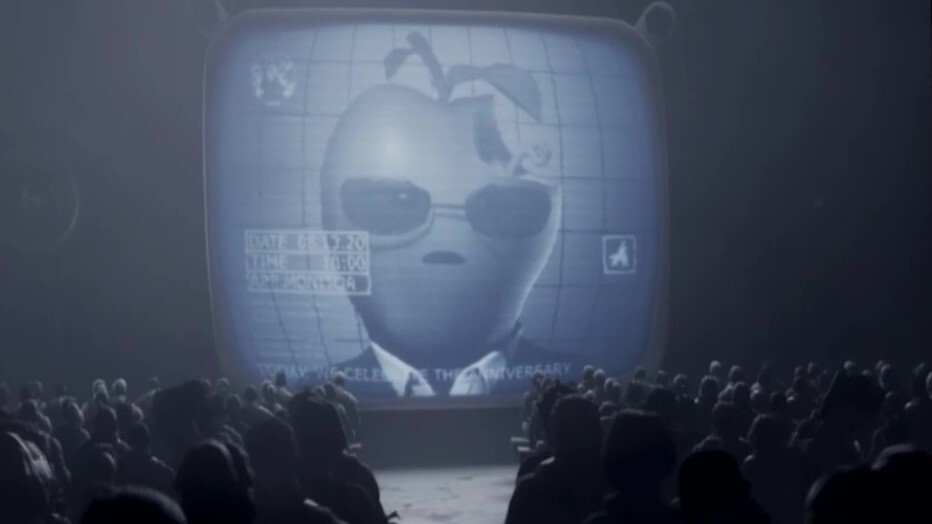Epic Games sues Apple over 'monopolistic practices'
Epic doesn't want money, but it does want to break Apple's monopoly on iOS apps and payment.

It's been a big day for Epic Games: It started off with a new payment system in Fortnite that bypassed Apple (and its 30 percent fee), offering players a discount if they purchased directly. The system contravened Apple's App Store policies, and it responded quickly and aggressively by removing Fortnite from the App Store entirely. Epic apparently anticipated this, as very shortly after the removal of Fortnite it announced a new Fortnite Party Royale short, Nineteen Eighty-Fortnite, a play on the famed Apple's famous 1984 ad for the Macintosh.
But the video isn't just a playful stunt: Just minutes after all that happened, Epic announced that it has filed a legal action against Apple.
Epic Games has filed legal papers in response to Apple, read more here: https://t.co/c4sgvxQUvbAugust 13, 2020
The lawsuit, available in full here, begins by pointing out that same 1984 ad, which it says "cast Apple as a beneficial, revolutionary force breaking IBM's monopoly over the computing technology market." Now, however, "Apple has become what it once railed against: the behemoth seeking to control markets, block competition, and stifle innovation."
Specifically, the lawsuit accuses Apple of using "anti-competitive restraints and monopolistic practices" in both the distribution of software and the processing of payments on iOS devices. At the same time, it notes, developers on other Apple hardware, such as Macs and Macbooks, are free to operate in an open market, using external stores or direct downloads, with a variety of payment options and more competitive processing fees.
The lawsuit goes into deep detail on the steps Epic believes Apple takes to maintain its hold on the iOS market and users of its hardware, and makes ten separate allegations including unlawful monopoly maintenance, denial of essential facility, and unreasonable restraints of trade. Interestingly, it also specifies that Epic is not looking for money—it just wants to break Apple's grip.
ABOVE: Epic lampoons Apple's famous 1984 ad with Fortnite machinima.
"Epic brings this suit to end Apple’s unfair and anti-competitive actions that Apple undertakes to unlawfully maintain its monopoly in two distinct, multibillion dollar markets:(i) the iOS App Distribution Market, and (ii)the iOS In-App Payment Processing Market," the lawsuit says.
Keep up to date with the most important stories and the best deals, as picked by the PC Gamer team.
"Epic is not seeking monetary compensation from this Court for the injuries it has suffered. Nor is Epic seeking favorable treatment for itself, a single company. Instead, Epic is seeking injunctive relief to allow fair competition in these two key markets that directly affect hundreds of millions of consumers and tens of thousands, if not more, of third-party app developers."
The lawsuit also makes clear, in case there was any doubt, that Epic started this fight with a purpose: It specifically references Apple's removal of Fortnite from the App Store in response to the new payment system.
"Rather than tolerate this healthy competition and compete on the merits of its offering, Apple responded by removing Fortnite from sale on the App Store, which means that new users cannot download the app, and users who have already downloaded prior versions of the app from the App Store cannot update it to the latest version," the lawsuit states.
"This also means that Fortnite players who downloaded their app from the App Store will not receive updates to Fortnite through the App Store, either automatically or by searching the App Store for the update. Apple’s removal of Fortnite is yet another example of Apple flexing its enormous power in order to impose unreasonable restraints and unlawfully maintain its 100 percent monopoly over the iOS In-App Payment Processing Market."
We'll continue to follow this story and update when more information is forthcoming.

Andy has been gaming on PCs from the very beginning, starting as a youngster with text adventures and primitive action games on a cassette-based TRS80. From there he graduated to the glory days of Sierra Online adventures and Microprose sims, ran a local BBS, learned how to build PCs, and developed a longstanding love of RPGs, immersive sims, and shooters. He began writing videogame news in 2007 for The Escapist and somehow managed to avoid getting fired until 2014, when he joined the storied ranks of PC Gamer. He covers all aspects of the industry, from new game announcements and patch notes to legal disputes, Twitch beefs, esports, and Henry Cavill. Lots of Henry Cavill.

